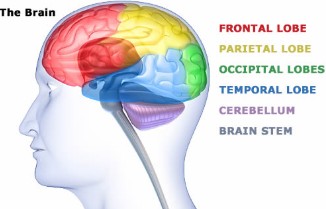
Frontal Lobe
- Personality Changes: Impulsivity, lack of self-control, inappropriate behavior.
- Emotional Regulation: Mood swings, depression, anxiety.
- Cognitive Functions: Poor judgment, difficulty planning, short-term memory loss.
- Motor Skills: Loss of voluntary movement, impaired muscle movements.

Parietal Lobe
- Sensory Processing: Difficulty with touch, spatial awareness.
- Coordination: Problems with hand-eye coordination, apraxia.
- Visual Perception: Difficulty processing visual information.

Occipital Lobe
- Vision: Visual field cuts, difficulty recognizing objects.
- Visual Processing: Problems with visual perception and interpretation.

Temporal Lobe
- Memory: Difficulty forming new memories, amnesia.
- Language: Problems with understanding and producing speech.
- Emotional Responses: Increased aggression, emotional instability.

Cerebellum
- Balance: Difficulty with balance and coordination.
- Motor Skills: Tremors, difficulty with fine motor skills.

Brain Stem
- Vital Functions: Issues with breathing, heart rate regulation.
- Motor Control: Weakness or paralysis.

These symptoms can vary in severity depending on the extent of the injury.
If you or someone you know is experiencing these symptoms, it’s important to seek medical attention and consult with a healthcare professional.
TBI 101: Behavioral & Emotional Symptoms | BrainLine
Frontal Lobe Damage: Symptoms, Treatment, & Recovery
Long-Term Effects of Traumatic Brain Injury | University of Utah Health

